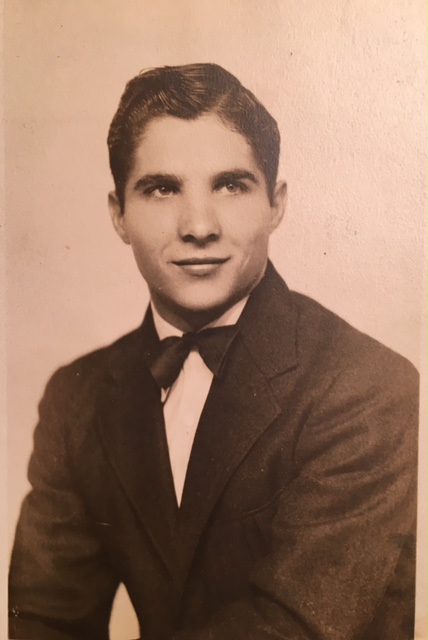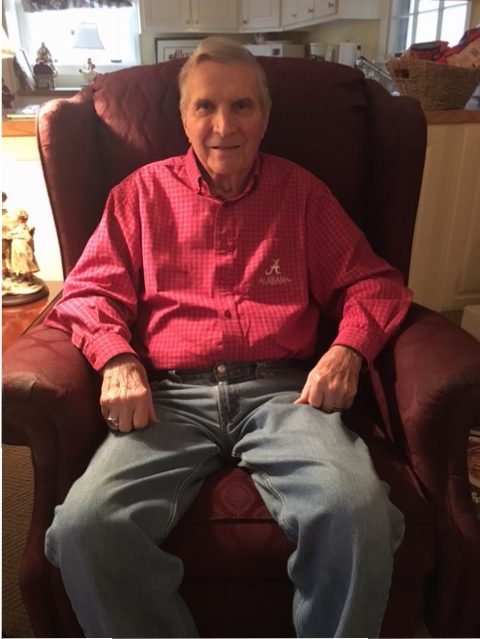SYLACAUGA, Ala. – December 7, 1941.
It is “a date which will live in infamy,” according to President Franklin D. Roosevelt.
Seventy-five years ago on that morning in Hawaii, while many American servicemen were still enjoying breakfast, Japan attacked the U.S. Naval Base at Pearl Harbor, killing nearly 2,500 servicemen.
Across the Atlantic Ocean, the Allied powers, consisting of England, France, and the Soviet Union, were fighting a losing war since September of 1939. The Axis powers, led by Nazi Germany, was well on their way to conquering Europe, and the Allies needed help.
The United States stayed neutral for the first two years of the war while its friends in Europe continued to fight. With the attack on Pearl Harbor, the Allied powers were given hope. British Prime Minister Winston Churchill famously said he “slept the sleep of the saved and thankful,” because he knew the Japanese woke a sleeping giant.
The very next day President Roosevelt declared war on Japan and entered the United States into the war against the Axis powers. With the stroke of a pen, millions of lives were changed. The country went from peace to war. Men went from living in their homes to living in ditches overseas, and families were separated. Over the next four years, 16 million of the toughest, bravest, and greatest Americans to ever live put their lives on the line in order to save the world.
In 1941, World War II veteran Leonard Perry Hickman, known as L.P., was just a 13 year old boy, but he remembers Pearl Harbor and the days that followed very well.
“It was something,” said Hickman with closed eyes as he looked back in time. “I remember President Roosevelt addressing the nation and I won’t ever forget it.”
He vividly remembers the days after the declaration of war and how quickly America changed. Rations were given out to Americans for things such as gasoline, and everyone dropped what they were doing to help the war effort.
Three years later, in January, Hickman, who was a star athlete at Comer High School, sat down with his father and athletic coaches and told them he decided that he was enlisting in the service. At just sixteen years of age Hickman joined the United States Navy. Shortly after, he was off to Illinois for basic training, and eventually made his way to Bremington, Washington for his assignment.
Hickman gave many honorable reasons for entering himself into the deadliest war in history as a young boy, but above all he felt it was just his duty. “I just had to go,” stated Hickman. “All of my buddies were drafted, so I felt like I needed to go, and I wanted to do my part.”
During World War II, Hickman served on an aircraft carrier on the West Coast and in the Pacific Ocean. He described his time on the U.S.S. Puget Sound as an “experience.” He reminisced on friendships made and said even though he was at war, he was able go places and see things he would not have seen otherwise. Although the war was depressing, Hickman was able to make memories, some good and some bad.
Five months into his service the Germans surrendered and the war in Europe ended. The war in the Pacific would last a few months longer. The Japanese and the United States battled until early August of 1945, when President Harry S. Truman made a decision that no other world leader has made since.
On August 6, 1945 a B-29 bomber dropped an atomic bomb on the city of Hiroshima flattening the city, killing thousands. With no sign of surrender from Japan, the United States decided to drop another bomb three days later. This time the city of Nagasaki was the target. After this bomb fell, the Japanese surrendered and World War II was finally over.
One of the bad memories for Hickman took place after the surrender. His carrier arrived in Tokyo shortly after the surrender was made official. Hickman described a war torn Tokyo as “not very pleasant.” He said parts of the city were smoking and on fire and said the smell of burning flesh filled the air.
Although the war was over, Hickman was not able to return home. He had to finish his time in the Navy. But in the Summer of 1946, his time was up and he was allowed to return to his hometown of Sylacauga.
“That was nice,” he proclaimed with a large grin on his face. “I was as proud of that as anything. I got back to Sylacauga at two o’clock in morning, and I was just thrilled to death.”
Hickman returned to Comer High School where he finished his sports career, and earned his high school degree.

Sacrifices continued after the war for Hickman. He said after coming home he had opportunities to play college sports at Virginia and Howard College, but after being away from home for so long he chose to stay in his beloved hometown of Sylacauga.
Today Hickman, 89, still lives in his hometown and gets around pretty well. He told SylacaugaNews.com he enjoys being with his wife, and watching his favorite sport, football.

Hickman was one of the lucky men who were able to return home, but many brave souls did not have the opportunity to return to their families. During the four years of war, it is estimated that more than 50 million soldiers and civilians lost their lives. Of the 16 million American soldiers that fought, over 400 thousand were killed in battle.
Dec. 7, 2016 will mark the 75th anniversary of the Battle at Pearl Harbor. While many say veterans of the Second Great War should be honored on Pearl Harbor Day, many say they should be honored and thanked every single day.
“There aren’t words big enough, or enough words to describe how much thanks they need,” said Jon Hall, president of the Vietnam Veterans Association of Sylacauga. “Freedom is not free. A lot of these people do not want to be put on a pedestal, but showing them a little appreciation goes a long way.”
Hickman agrees. He said he does not get out much because of his age. But when he does, he enjoys hearing from people in the community. He said it puts a smile on his face to know so many people go out of their way just to tell him that they appreciate his service.
Today, there are a little more than 600,000 World War II veterans still alive in the United States according to the National World War II Museum. That number is dwindling quickly. Everyday an average of 372 of the greatest Americans pass away.
Time is running out to show these brave men and women how much they are appreciated.
Jeremy Law for SylacaugaNews.com | © 2016, SylacaugaNews.com/Marble City Media LLC. All Rights Reserved.



